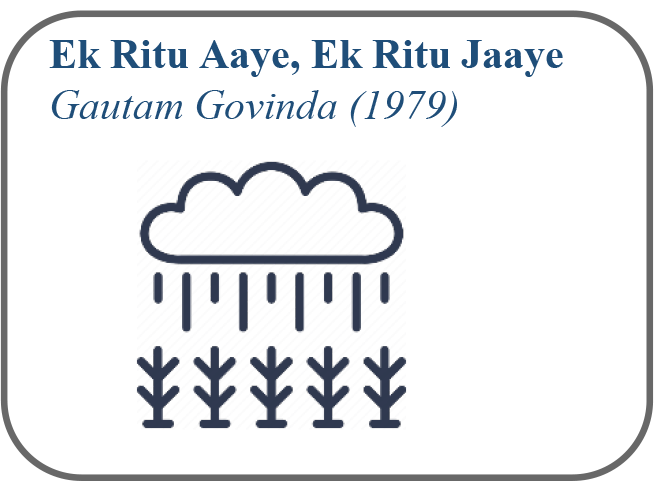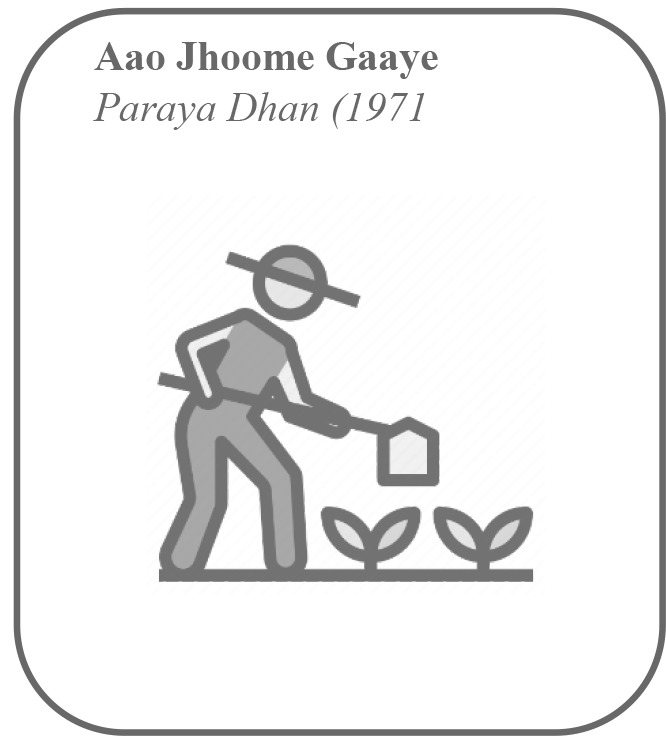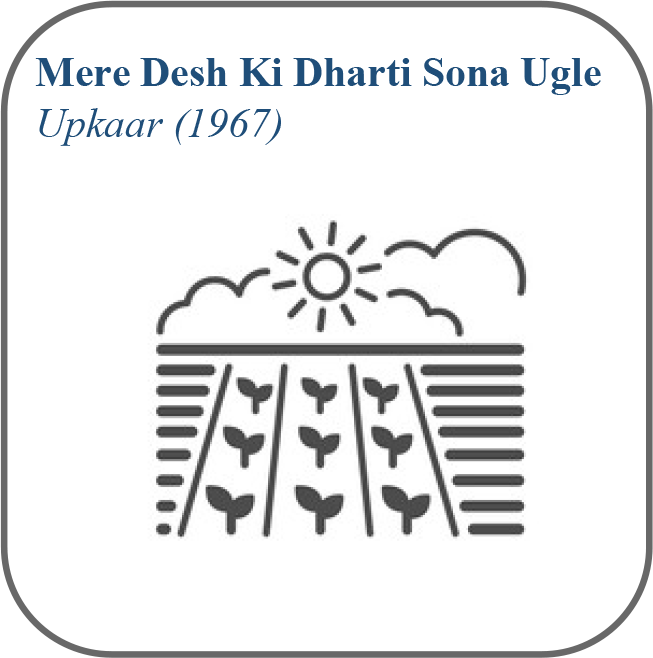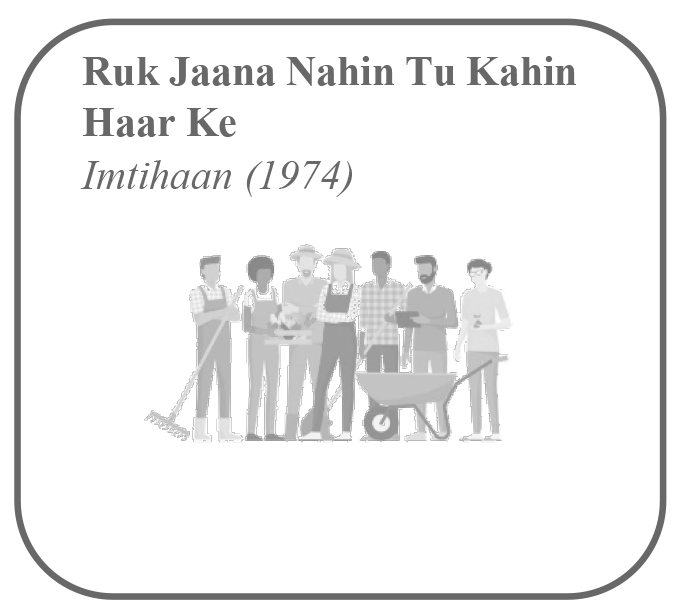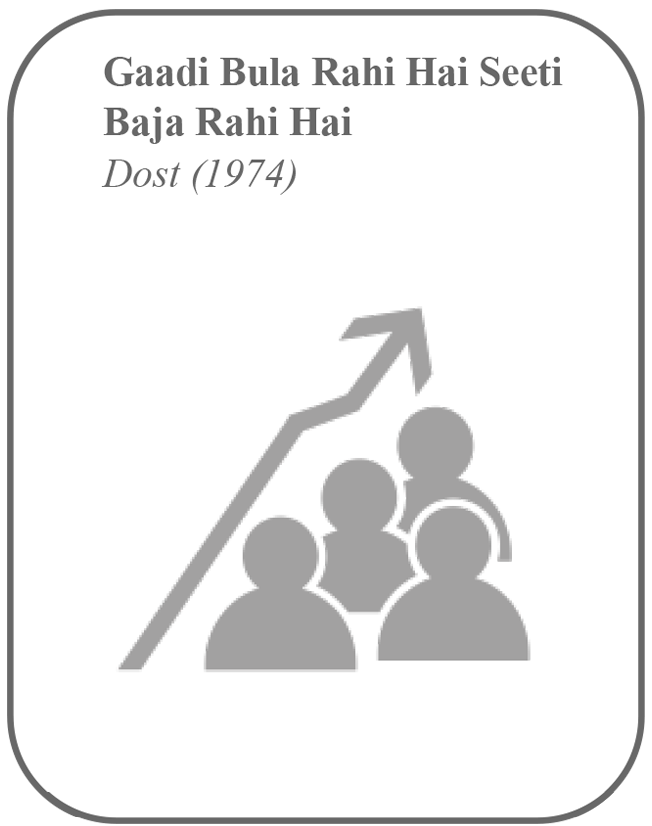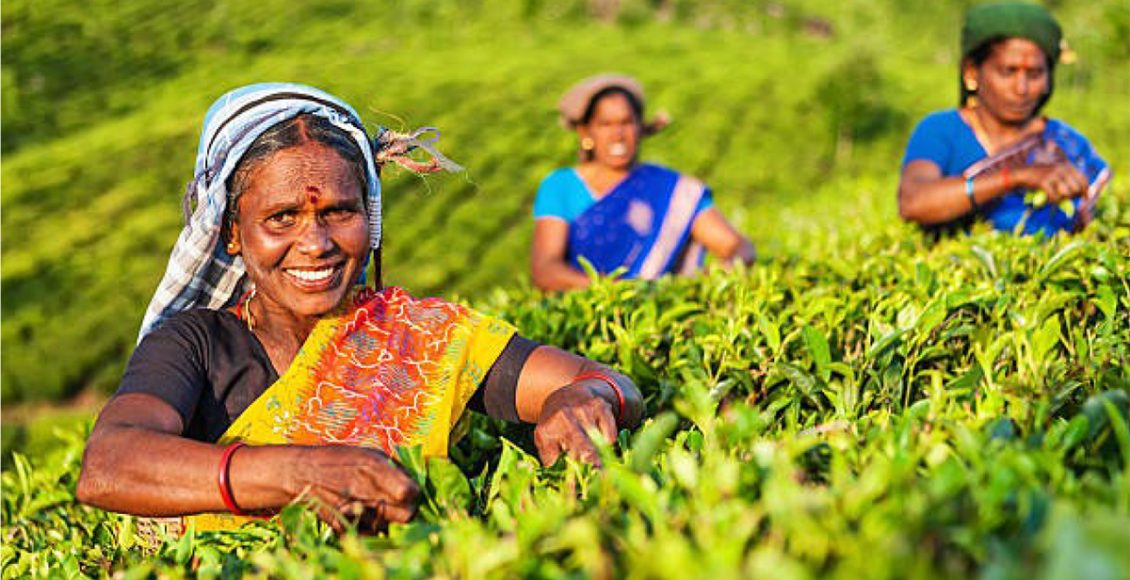
My work takes me to farm fields across India, providing me with opportunities to listen to melodious music and interact with farmers. The different local music makes me ponder the wide diversity in Indian agriculture and allied industries. While listening, I could connect the lyrics of some classic songs to the farmers and agribusiness industry. Here I present five captivating songs that capture farmers’ spirits during on-farm and post-harvest activities and how they are connected to the agribusiness industry.
The song's lyrics "Tak Tak Sukhe Parbat Aankhein Taras Gayin Badal to Na Barse Aankhein Baras Gayin" capture farmers" changing moods while waiting for rains after intense rains heatwaves across vast swathes of Indian states. Since Indian agriculture is primarily monsoon-dependent, farmers wait for rains and rely on rain predictions from the Indian Meteorological Department (IMD) to make an informed decision about agri-input purchases for the season, impacting sales of agri-input companies in India.
The song celebrates harvesting. Its lyrics, "Aao Jhoomein Gaaye Milke Dhoom Machayein Chun Lein Gham Ke Kaante Khushiyon Ke Phool Khilayein," loosely translated as "Let us sing and dance, let us remove thorns of sadness, let us grow flowers of happiness", depicts the excitement among farmers and the whole village once their crop is ready for harvesting. Though I have mentioned the initial few words of the song, the whole song is dedicated to farmers, harvesting and celebrations of harvest, and anticipation of profits from marketing the crop produce (grains and cabbage). The melody shows happiness across the village as farmers prepare to sell the crop produce and begin planting from their earnings next season. It also denotes the time of agri-input companies to plan their product placement and enhance marketing efforts for better profit.
Another popular song often played during national festivals like independence day and republic day connects to agribusiness and its stakeholders. Its lyrics, "Mere Desh Ki Dharti Sona Ugle Ugle Heer Moti", loosely translated to English as, "The land of my country gives us gold, diamond and pearls", shows farmers' connection to the soil. The song's title is a gratitude to the country's land that provides farmers with the high yields that, for him, is like gold. It can only be possible with the right inputs, right practices and doing everything precisely at the right time. For agribusiness companies, the song conveys that by selling the high yielding seeds, better inputs (agrochemicals, fertilizers, biologicals etc.) and services (mechanization, harvesting, marketing etc.), they can earn a profit on one hand and also help farmers benefit.
The song encourages entrepreneurs during tough times. Its lyrics, "Ruk jaana nahin tu kahin haar ke, kaanton pe chalke milenge saaye bahaar ke," is translated as"Don't stop even if you lose; you will find success after tough times.” Various businesses face ups and downs, which have become more common in agribusiness in the last two years, where supply chains were disrupted due to lockdowns necessitated by the COVID-19 pandemic. The song’s lyrics can keep all entrepreneurs motivated during tough times and keep them on track to meet targets and achieve more for the organization. The song motivates us not to stop even if we lose or do not achieve anything
A section of the song, “Aage Toofan Peeche Barsaat Upar Gagan Pe Bijli, Soche Na Baat, Din Ho Ke Raat, Signal Hua Ke Nikli” can be translated as “Ahead of you is a storm, back to you is rains, above is lightning, do not think of talks whether it is day or night, you start your journey towards success.” It is one of the most motivational songs for anyone for success, more so for agribusiness as the challenges are myriad in achieving high-profit margins is key to all the companies every year. The song motivates individuals and organizations to take a cue from a train and keep going on, regardless of the hurdles. If you stop, everything that follows your activities will stop. For example, if a seed company doesn't produce high yielding seeds, the entire value chain becomes untenable. Also, the song speaks about the need for resilience by organizations and all stakeholders, especially farmers. Every effort must be made to get the crop in on time and manage it optimally for maximum yield and better quality and profits.
Author

Dr. Anand Singh
Associate Vice President
 Grow Beyond
Grow Beyond 
